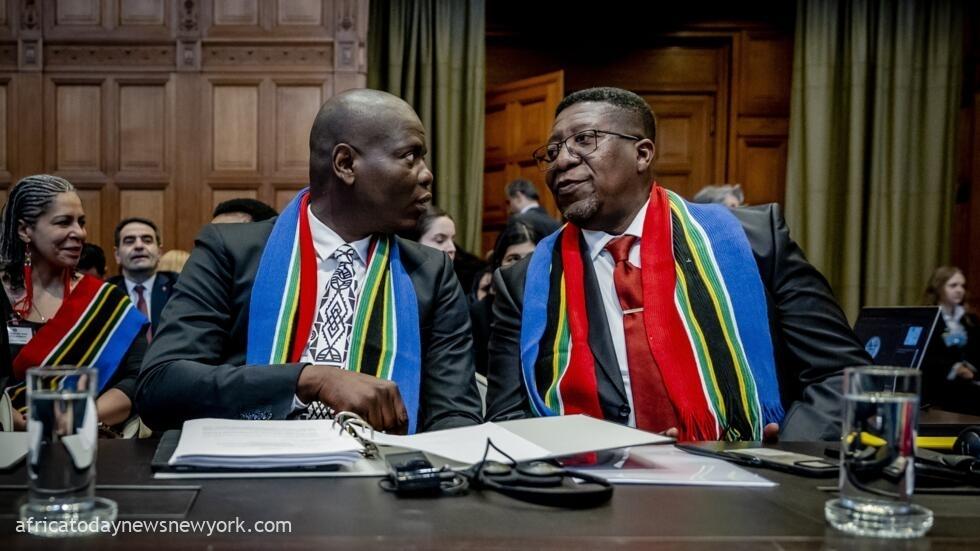South Africa on Thursday accused Israel of breaching the UN Genocide Convention, saying that even the October 7 Hamas attack could not justify such alleged actions.
Pretoria has lodged an urgent appeal to the International Court of Justice (ICJ) to force Israel to “immediately suspend” its military operations in Gaza. Israel has dismissed the case as “atrocious” and “preposterous”.
“No armed attack on a state territory no matter how serious… can provide justification for or defend breaches of the convention,” said Pretoria’s Justice Minister Ronald Lamola.
“Israel’s response to the October 7 attack has crossed this line and given rise to the breaches of the convention,” he added, setting out South Africa’s case at the ICJ.
When Hamas launched its unprecedented offensive, the conflict in Gaza broke out. A count based on official numbers indicates that 1,140 individuals were killed in Israel, the most of them civilians.
Read Also: South Africans Rally Around ‘Genocide’ Case Against Israel
Israel has responded with a relentless military campaign that has killed at least 23,357 people, mostly women and children, according to Gaza’s Hamas-run health ministry.
South Africa argues Israel is breaking its commitments under the UN Genocide Convention, a treaty signed in 1948 in the wake of the Holocaust.
Top lawyer for South Africa Adila Hassim said Israel’s bombing campaign aimed at the “destruction of Palestinian life” and had pushed Palestinians “to the brink of famine”.
“Genocides are never declared in advance, but this court has the benefit of the past 13 weeks of evidence that shows incontrovertibly a pattern of conduct and related intention that justifies a plausible claim of genocidal acts,” she said.
As a fellow signatory to the treaty, South Africa can take Israel to the ICJ, which rules on disputes between countries and is often described as the “World Court”.
The ruling African National Congress (ANC) has long been a firm supporter of the Palestinian cause, often linking it to its own struggle against the white-minority government, which had cooperative relations with Israel.
South Africa has acknowledged the “particular weight of responsibility” of accusing Israel of genocide. It has “unequivocally” condemned the Hamas attacks that touched off the war in Gaza.
Israel will present its own arguments Friday but President Isaac Herzog has already hinted at his country’s likely defence.
“There’s nothing more atrocious and preposterous than this claim,” said Herzog.
“We will present proudly our case of using self defence… under international humanitarian law,” he said.
Herzog said the Israeli army was “doing its utmost under extremely complicated circumstances on the ground to make sure that there will be no unintended consequences and no civilian casualties”.
The United States is backing its ally Israel, with the State Department describing the charges as “unfounded”.
“In fact, it is those who are violently attacking Israel who continue to openly call for the annihilation of Israel and the mass murder of Jews,” said State Department spokesman Matthew Miller.
As it is an urgent procedure, the ICJ could rule in a matter of weeks.
Its rulings are final and cannot be appealed. However, countries do not always follow the court’s verdicts — the ICJ has ordered Russia to stop its invasion of Ukraine, for example.
But a court ruling against Israel would certainly increase political pressure on the country, with many speculating it could serve as a pretext for sanctions.
Cecily Rose, assistant professor of public international law at Leiden University, said the court did not have to rule on the fundamentals of the case at this stage — that issue will likely take years.

